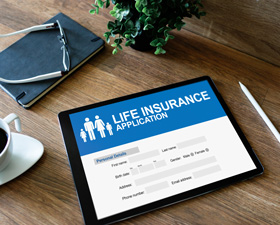If you own a business, chances are you’ve at least thought about the conditions under which you will leave the business and who is going to take over after you’re gone. Business continuation is difficult enough under normal circumstances, but if it takes place following the unexpected death of a key person or owner, the complications can increase exponentially.
Company-owned life insurance is one way to help protect a business from financial problems caused by the unexpected death of a key employee, partner or co-owner. If the covered individual dies, the proceeds from this type of insurance can help in several ways. Here are some examples.
Fund a Buy-Sell Agreement
A buy-sell agreement typically specifies in advance what will happen if an owner or a key person leaves the company, either through a personal decision or because of death or disability. The death benefit from a company-owned life insurance policy can be used to purchase the decedent’s interest in the company from his or her heirs.
Keep the Business Going
If a decision is made to continue the business, there may be a period when operations cease while the survivors develop a plan to move forward. The death benefit can be used to help replace lost revenue or to pay costs associated with keeping the doors open, including rent, utilities, lease payments, and payroll. It may also help the surviving owners avoid borrowing money or selling assets.
Replace Lost Income
If a business owner has family members who depend on the income from a business, which simply could not continue if he or she were suddenly gone, the proceeds from company-owned life insurance could help replace the lost income and help protect the family’s quality of life while they adjust and move on.
The appropriate coverage amount will depend on several factors. It could be a multiple of the business owner’s annual salary or the company’s operating budget. Don’t forget to factor in such details as the cost of hiring and training a successor, where applicable, and any debts that the family may have to repay.
A thorough examination of a business and the related personnel should be conducted before the exact amount of coverage is determined.
Remember that the cost and availability of life insurance depend on factors such as age, health, and the type and amount of insurance purchased. Before implementing a strategy involving life insurance, it would be prudent to make sure that the individual is insurable. As with most financial decisions, there are expenses associated with the purchase of life insurance. Policies commonly have contract limitations, fees and charges, which can include mortality and expense charges. In addition, if a policy is surrendered prematurely, there may be surrender charges and income tax implications.
The loss of an owner can be devastating to a small business. A company-owned life insurance policy may help reduce the financial consequences if such a loss were to occur.
Do I Need a Business Owner Policy?
Your business may be running smoothly. You could be making money hand over fist. But don’t be lulled into thinking that a catastrophe could never hit your business. Disasters can strike in many ways; even a minor one could wipe out a lifetime of hard work.
Fortunately, the appropriate business owner’s insurance policy, sometimes called a BOP, can help protect your company in the event of property damage, business interruption, or legal troubles.
Property Coverage
A BOP can insure a company’s buildings and equipment in much the same way as homeowners insurance covers a residence and its contents. A standard BOP policy helps protect against a specific list of perils, such as fire, wind, hail, water damage, and vandalism.
It’s advisable to insure for “replacement value” rather than “actual value.” That way, you might not have to come up with extra money to get back to business. The premiums will be higher, but the extra expense may well pay for itself if it means getting back to work in a matter of days rather than weeks or months. You may be able to offset the extra expense by working with the insurer to identify and reduce certain types of risks to help lower premiums.
Liability Coverage
This coverage is essential if someone were to become injured on your premises, by your employees, or by one of your products. It can be used to pay medical costs for the injured parties or to defend against liability claims, even if a claim is unfounded. Liability coverage also helps protect against claims of slander or libel.
Business Interruption
If your business operations cease because of a disaster, this coverage can help replace the lost income and expenses related to operating from a temporary location.
A natural disaster is only one of the many threats facing small businesses. In such a situation, a business owner policy can help put you back in business.
MANA welcomes your comments on this article. Write to us at [email protected].



